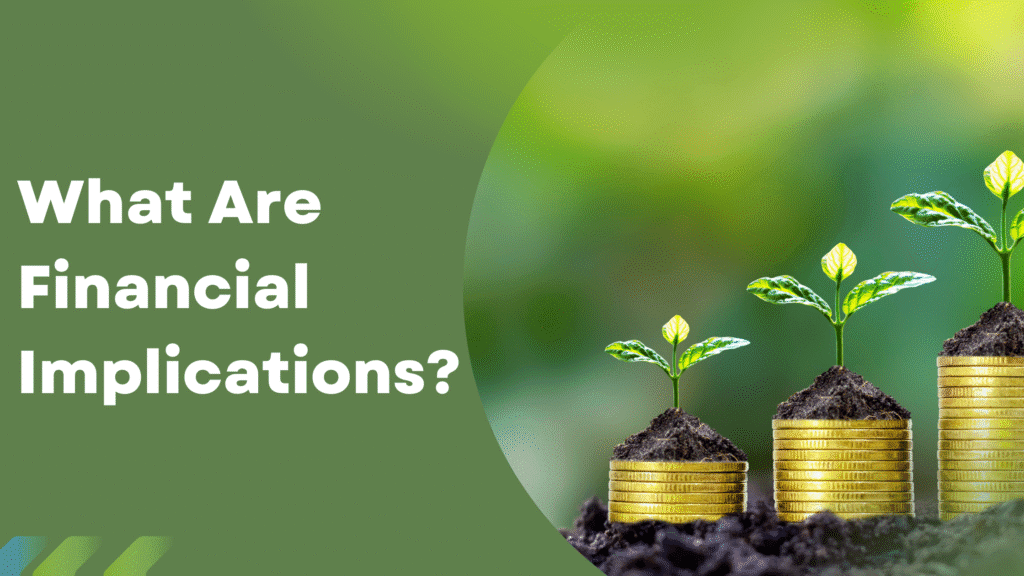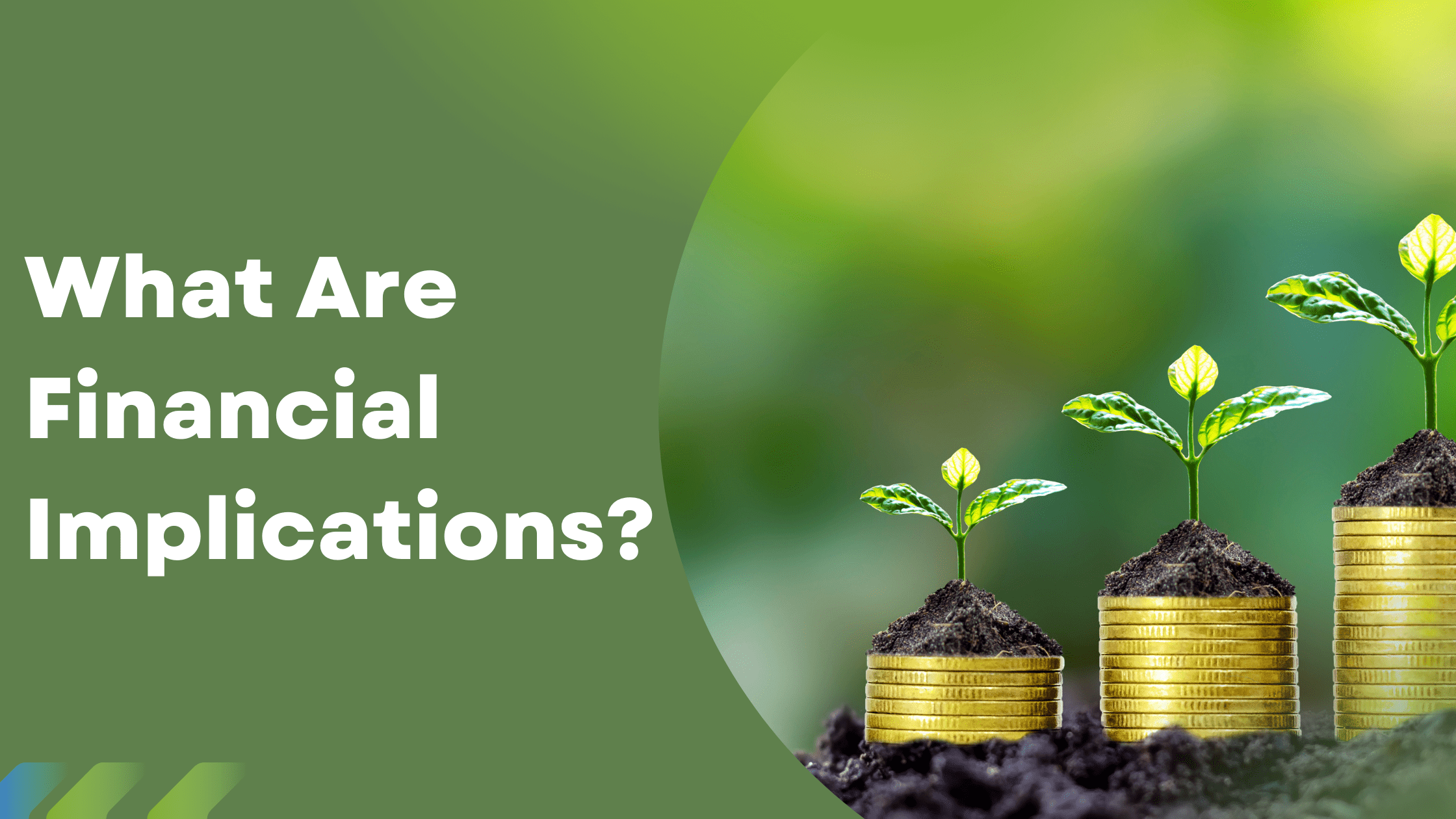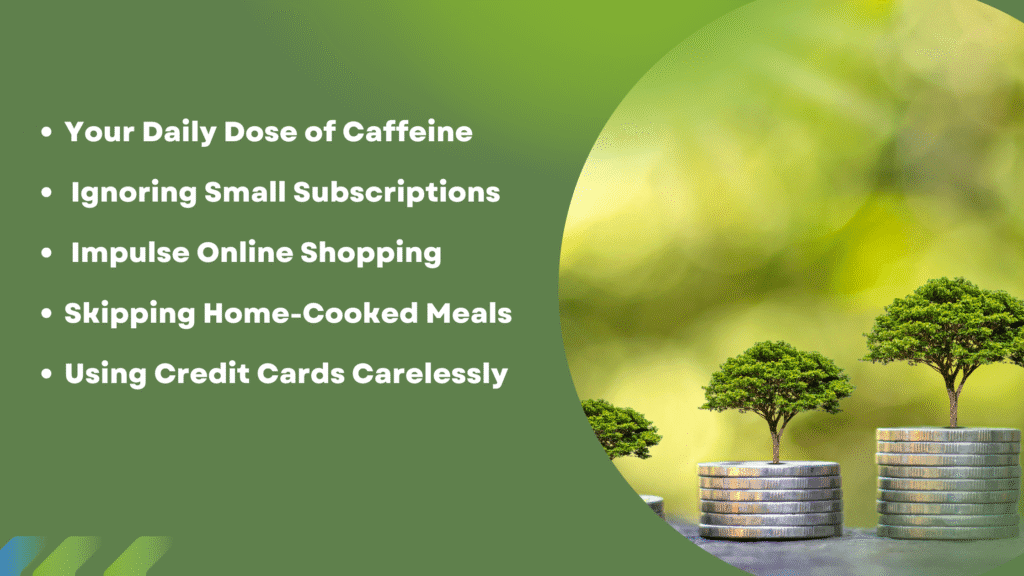Introduction
All the progress we make, and the people we become, is usually due to the choices we make. Buying something expensive, starting up a business, or even taking a loan, is a decision we have to make. Each of these decisions has an impact, and that impact is called financial implications.
In simple terms, financial implications is when a decision affects your monetary resources. It is not only how much is going to be spent right now. It also involves future costs, future expenses, risks, and benefits, and the determination of the payoff as well.

Examples
- If you’re going to buy a car, the financial implications is not only the purchase price. It also includes the future expenses that have to be made like fuel, repairs and even insurance.
- If you’re going to take a loan as a student, expect to also make a monthly payment along with the loan and also the interest that accumulates.
- If you’re going to be starting a new business, you have to also be ready with the setup costs, along with the running expenses, and the business profits.
So the next time you want to make a big move, ask “What are the financial implications?” — this question will make your planning much easier and help you avoid money worries in the future.
5 Everyday Decisions and Their Hidden Financial Implications
In our minds, only certain monetary decisions, such as purchasing a home or taking out a loan, will affect our financial future. In actuality, the small decisions we make on a daily basis impact our financial health. The cup of coffee you practically have to have every morning, or that unused subscription service that slowly and silently slurps money out of your account every month, all of these in the long run, will cost you money. Let’s take a look at 5 small decisions and analyze their hidden financial outcomes.
- Your Daily Dose of CaffeineThat $2 or $500 coffee every morning doesn’t feel like a lot, but multiplied by a year, it ends up costing you thousands. Think how much money you will spend on coffee if we take that 1 ½ week trip to Mexico. Now think, what happens if you make coffee at home and do not spend that money, it will automatically go to a savings account, or as an emergency fund, or even in an investment account. Unlike people think, small amounts do accumulate to big numbers.
- Ignoring Small SubscriptionsSubscript Dividio, Tiny emails, and Never Ending Presentation Slides – these all look cheap when you look at them individually. But when you do that with all the other subscriptions you have, you can see these “small” monthly charges can take away a lot of your money. Setting aside 5 minutes a month to go through what your financial do what matters the most.

- Impulse Online Shopping While browsing e-commerce sites offers an enjoyable online shopping experience, such activity might turn into impulse buying. Deals and flash sales may entice you and prompt you to spend above your budget. The economic impact? Less money saved and an excess of assorted items. A behavioral cheat: wait another 24 hours before purchasing. In most cases, you realize you truly do not need that item.
- After a Full Day’s Work, Skipping Home-Cooked MealsTakeout is ordered, step-by-step, and all the workings of the modern day chef magically appears in your kitchen. Takeout is, of course, enjoyable and easy, but there is a heavy, hidden price to pay. The number of times you eat takeout can be in the range of ten to twenty times, quadrupling your spending money. All of this, simply because cooking takes far less effort than quantitative eating. Less effort ultimately leads to less expenditure. In reality, cooking is far more
- Not Handling Your Credit Cards with Any Sort of Care The swipe of a credit card is the most effortless transaction you can do. With it, you do not notice your current balance. The downside is that with such effortless purchasing, unpaid debt piles gonstantly, and rapidly, and interest builds up. Having a debt for an extending period of time, people do not realize how fast it diminishes your earnings. In this scenario, you notice most balance deductions. In order to avoid such losses, it is beneficial to pay your balance in time so the hidden financial burdens will be avoided, or an even easier option is to use cash.
Risks of Financial Implications
Every financial decision has its consequences. If we do not understand and plan for them, the risk multiplies:
- Debt Burden. If the wrong calculations in rational borrowing within one’s means, it’s possible to incur more debt, making repayment a burden.
- Cash Flow Issues. If there is no equilibrium in the income and expenses, it’s possible to run out of money to carry out daily transactions.
- Obscured Expenses. The hidden charges and penalties of loans, credit cards, and even certain investments creates financial obstacles due to insufficient planning.
- Uncertain Futures. Taking a decision without sufficient analysis and research risks the goals one has set in the future (education, a house, retirement) without any backup.
Benefits of Financial Implications
Based on the available literature, the applicable benefits include.
- Better Money Management – A robust budget and savings plan can be achieved from gaining an understanding of the financial impacts of one’s activities.
- Reduced Stress – Knowing that one’s actions are financially sound brings about tranquility.
- Informed Decision-Making – Understanding the risk and the reward makes it possible to invest and develop financial plans that are safe.
- Future Security – Strong improvement comes from sound planning for retirement, education, and emergency funds.
Final Thoughts
When understanding the implications of finance, we do not have to strictly stay to the large purchases or large loans. We can analyze every purchase we make, be it as small as our morning coffee or as gigantic as our career plans. Each of our decisions likely has some effects, whether direct or indirect, on our financial position tomorrow.
Being able to factor in the risks associated with decisions, the costs that might seem hidden, helps you to stay in the driver’s seat. Money becomes subordinate and, in the process, you achieve some of mental relief from the burdens of worrying. Your mind becomes financed and, in the process, you achieve mental poise.
Next time you have to make a decision, in all its forms, be it big or small, first give the question: “What are the financial implications of this decision?” The answer in all likelihood will bridge the gap which exists in the position of spending, savings and in the strong hold of finance of the person.


